J. Robert Oppenheimer (Cillian Murphy) with the “Gadget” from Oppenheimer (Credit: Christopher Nolan, Universal Pictures)
Oppenheimer opening in Japan highlights old debates over the use of nuclear weapons to end World War II
Last year’s titan at the Oscars, Christopher Nolan’s epic biopic, Oppenheimer, recently opened in Japan to a severely mixed reaction. It should come as no surprise that Japan is sensitive to the depiction of nuclear weapons considering that they are the only nation to have felt the devastation of a wartime nuclear strike.
At the time, a multitude of factors influenced America’s use of the atomic bomb. Simply put, it was a simpler way of leveling a city than the extensive bombing campaigns which ruined cities like Tokyo, Dresden, Berlin, and other targets during the war. Instead of thousands of bombers, it was just one aircraft. Instead of months worth of raids, it was one sortie. Instead of hundreds of tons of munitions, it was one singular device.
Furthermore, Hiroshima was considered a valid military target under the rules of engagement. The city served as the headquarters for both the Second General Army and Chūgoku Regional Army, and the Army Marine Headquarters was located at Ujina port. The city also had large depots of military supplies and was a key center for shipping. Using the calculus of its time, these factors made Hiroshima a valid military target for an ordinary bombing campaign.
It’s just that there was nothing ordinary about the raid on August 6th, 1945.
Island Hopping All The Way to the Mainland
The war in the Pacific had been in America’s favor since Battle of Midway in June 1942, a scant six months after the attack on Pearl Harbor in Hawaii that brought America into the war. At Midway, the Imperial Japanese Navy was decimated as a fighting force, losing the majority of their aircraft carriers and being unable to replace them, along with the experienced pilots that was part of the complement. With an increased focus on air power helping turn the tide of the war, the American victory at Midway gave America the momentum and opportunity to go on the offensive. The battle for the Pacific became a brutal slog as American Marines landed on islands and crushed Japanese resistance, often to the last man, moving closer to the mainland every few months, and leaving a trail of death and sorrow in its wake.
The last fighting on the ground in the Pacific happened in May 1945 during the Battle of Okinawa, one of the closest islands to the Japanese mainland. By this point in the war, the Japanese were getting desperate, such as ordering barely trained pilots into remaining aircraft to deliberately crash into American ships to take as many Americans as they could with them. These attacks were called kamikaze (translation: divine wind) and exemplified the suicidally defiant attitude taken by the Japanese Empire and its people during the waning days of the war. It was seen as a great dishonor to be captured or to surrender, so many of the Imperial Japanese soldiers would commit suicide when their situation on the battlefield became untenable and they were worried the Americans would be able to capture them.
Because it was seen as so dishonorable, surrender was not being considered at that time in Japan, at least not publicly. Thus, the Allies began planning Operation Downfall, a proposed invasion of the Japanese home islands. The contemporary wisdom was that there would be close to 300,000 American casualties (a casualty counts either Killed in Action or Wounded in Action) for the invasion of the home islands. Adding the expected civilian and Imperial Japanese military casualties brings the estimated total to well over a million. During the leadup, the American brass anticipated a million American casualties in their planning sessions.
At the time, the bombings were seen as necessary to bring the war to an end without risking an invasion of the Japanese mainland. Such an invasion would have resulted in potentially a million casualties by the end of it, including civilians who would fight a losing battle to the death to protect their nation. Japan had no interest in surrendering until it was shown that their cities could be wiped off the map in a flash of hellfire and devastation. Their situation was unwinnable, and yet they were refusing to back down. There was even an attempted coup to stop any potential surrender. Tokyo had already been devastated by bombing raids, and it only strengthened the resolve of the Japanese people. In the minds of the American leadership in 1945, only something which could never be imagined could have forced the Japanese to realize their situation was unwinnable and that surrender was the only option. The nuclear weapons were ready too late to use on Germany as a demonstration of American science and ingenuity, but Japan was still in the war, and the Soviets needed to be warned that we were more powerful than they could ever dream to be. Hence the sacrifice of 226,000 people within one week in August 1945.
More contemporary thoughts question whether or not the bombings were necessary. The matter is still up for debate amongst academic circles, and without intimate insight into the thought processes of the Japanese high command in the days before the bombs were dropped, it’s doubtful that there will ever be a consensus reached. The arguments against the bomb’s necessity cite the projected casualty count being artificially inflated, the virtual collapse of Japan’s combat effectiveness compared to the American, British, and Soviet forces, and the fact that the bomb’s usage was to demonstrate to the Soviets that the Americans had this weapon and were willing to use it in hopes of dissuading the Soviet atomic program. As evident by the fact that the Cold War happened, the USSR developed nuclear weapons after the war, proving this last point to be a miscalculation.
In essence, there is a more modern view that the atomic bombings of Hiroshima and Nagasaki were useless as Japan would have surrendered anyway, and all it did was bully an already-defeated nation, poisoning hundreds of thousands of its citizens with radiation.
Sometimes, A Film is Just A Film
It’s completely understandable that Japan might be a bit torn over Oppenheimer. The use of the bomb is a horrendous tragedy for the Japanese people and their collective consciousness, and the movie’s focus was not on the atrocity of its use. One could read the movie as being too American-centric, and as overtly painting in favor of the bomb’s usage to preserve American lives. There is also the criticism that the guilt Oppenheimer faces over the use of the bomb coming from a place of self-flagellation instead of the horror at what he might have unleashed. Or even that it was performative, because Oppenheimer resented the focus being taken off of him as “The Man Who Conquered The Atom.” Those ideas were touched upon by the movie.
On the other hand, the argument can be made that the movie’s focus was on J. Robert Oppenheimer’s life, and that the Trinity test in Alamogordo was the most important moment related to the creation of the atomic bomb he shepherded. Randomly showing the aftermath of Hiroshima and Nagasaki would have detracted from the narrative, and showing the full impact and horror of the bombings would have doubled the length of a movie already running three hours long. On a storytelling level, the sense of isolation the audience feels once the devices left Los Alamos mimics the sense of isolation which Oppenheimer himself felt by being insulated from the news of the bombs’ usage for so long at Los Alamos.
J. Robert Oppenheimer was a fascinating historical figure, and Christopher Nolan did a masterful job at exploring his life. However, a film has to maintain its focus in the name of cohesion, and ultimately, the movie was not about the Manhattan Project or nuclear weapons. Perhaps this is a call for a depiction of these events to be handled with the appropriate reverence as something audiences would like to see.
The debates over the movie transcend film criticism and highlight the fact that wars are never clean affairs.
War Observes No Rules
The Atomic Bombings are seen today as war crimes. The idea of war crimes is a relatively recent one, only coming about in the wake of World War II. It’s also important to note that international law as such is not actually law, since there is no real enforcement. It operates more as a framework for how nations should treat each other, and only exists with the consent of those who choose to submit to it. The idea of war crimes came about in response to the indiscriminate slaughter, trophy taking, and inhumane treatment of everyone involved that occurred on all sides of the war. For as many American prisoners who were tortured to death by the Japanese, there were American Marines who desecrated Japanese corpses to take scalps or gold teeth as trophies. The atrocities in the European Theater were just as brutal, even without getting into the total horror of the Holocaust.
By all metrics, the atomic bombings of Hiroshima and Nagasaki would be considered war crimes today. The Bulletin of Atomic Scientists lays out a pretty thorough argument in favor of this point. The idea of targeting civilian centers purposefully – even with them having large numbers of military targets – is no longer acceptable in the modern age. Today, nations are developing smarter weapons which can hit their targets and cause as little collateral damage as possible. The idea of the knife missile that America developed which killed Osama bin Laden’s successor as leader of Al Qaeda, Ayman Al-Zawahiri, would be laughable to military leaders in the 1940s. They would question the need to keep civilian populations safe, because those civilian populations would be considered as contributing to the enemy war machine. Every civilian killed by a bomber is one more gun which will never fired at friendly troops when trying to take the city.
It speaks to the changing nature of warfare that the idea of blasting a civilian population into dust and radioactive ashes is so horrifying to modern societies. Not until Russia’s invasion of Ukraine in 2022 that a nation has had to turn their full attention towards war. The concept of total war does not resonate with modern society as warfare does not look like that anymore. Gone are the days of suspending automobile manufacturing to build tanks and planes, for example.
Part of the Victory Gardens and scrap metal drives being a thing of the past is the nature of warfare changing. No longer is it about pure numbers, but about technology being a force multiplier. With the advancement of technology, one stealth bomber with a guided munition can take out the government building which previously necessitated hundreds of conventional planes dropping thousands of unguided bombs plus fighter escorts, all risking enemy planes and ground fire. The other part of total war being a thing of the past is that most nations who do business with each other have no desire to shoot at each other. China and America will never face off in a direct confrontation because of how tightly knit their economies are. America would default on its debt to China if the two nations ever faced off, cratering both economies, which would ripple around the world.
War is abhorrent all around, and there is just no way to ever fight one in a completely moral fashion. Unfortunately, when it comes to matters of existential struggles – which most countries other than the United States were engaged in during WWII – there are few rules that aren’t thrown out the window. When the war broke out, the world was a different place with different acceptable behaviors. America was still a segregated society. India wasn’t an independent nation. It took ages to travel the world and was so expensive to call even just thirty miles up the road. Apologizing for making a horrible choice during days of only horrible choices shouldn’t be something that America is hesitant to do, it should welcome it as an opportunity to say, “Look at us, and the progress we’ve made since then. It was wrong, but we’re working towards building a better future.”
While an American apology for the bombings does not seem to be totally ridiculous to consider, even if they were justified, it does come as a little shocking that so many in Japan call for a formal apology while downplaying their nation’s own sordid history as part of the war. Not to say that war should be a case of whataboutism, or being on the winning side absolves that side of wrongdoing in warfare. The atrocities the United States committed during the war should not be overlooked, neither should those of Nazi Germany nor the Soviet Union. War is never a simple affair, and by its very nature, heinous acts are to be expected. The important thing is to look at those actions and reflect as time goes by, to make amends for those who have been wronged and make commitments to continue doing better.
Now is the time to reckon with the nature of the past, so that those mistakes aren’t repeated in the future. There are so few people in policy positions now who remember the Second World War, and without that firsthand knowledge, society runs the risk of becoming complacent. Perhaps it is time to recognize the legacy of the atomic bombings as that of a potentially necessary tragedy which nevertheless were crimes against humanity. Perhaps its time to recognize that war is never a clean affair, and that in wartime, nations have a duty to their own citizens and military members over other nations, and the horrendous result of such thinking patterns is why war should never be allowed to happen again.
The World Today
We have the benefit of hindsight. Nobody knew the full extent of the use of atomic weapons until after they were used, and the aftereffects could be studied. Unleashing the horrors of destroying a city in a single flash is what made the movement against nuclear weapons so successful. Seeing what these weapons could unleash is what caused Khruschev and Kennedy to find a peaceful resolution to the Cuban Missile Crisis. The footage of Hiroshima and Nagasaki in ruins underlined the importance of the SALT treaties. The fears of open conflict and so many near misses of nuclear war was so important in President Ronald Reagan’s and General Secretary Mikhail Gorbachev’s friendship and shared goals of preventing a nuclear war. None of the international cooperation today would have been possible without the pressing need for diplomacy over military action on mass scales. Without the power to destroy the planet, humanity would never have created the United Nations. While the UN is often in the news for the stagnation of the Security Council (by design, it’s a diplomatic forum, not world government), the United Nations accomplishes a great deal through its aid organizations.
While we still see war today, such as the ongoing Russian invasion of Ukraine, it can be argued that we are living in the most peaceful time in human history. We have not seen open conflict between major world powers since the end of the Second World War. Perhaps unleashing forces beyond our control was the impetus we needed to look towards other solutions for our problems before turning to violence. Maybe, despite its danger and horror, peace is part of the legacy of nuclear weapons. Chuck Hagel said, “Peace comes from dealing with people. Peace doesn’t come at the end of a bayonet or the end of a gun.”
Maybe it was just that we didn’t start talking to other people before the gun was in the room and we saw someone get shot with it.
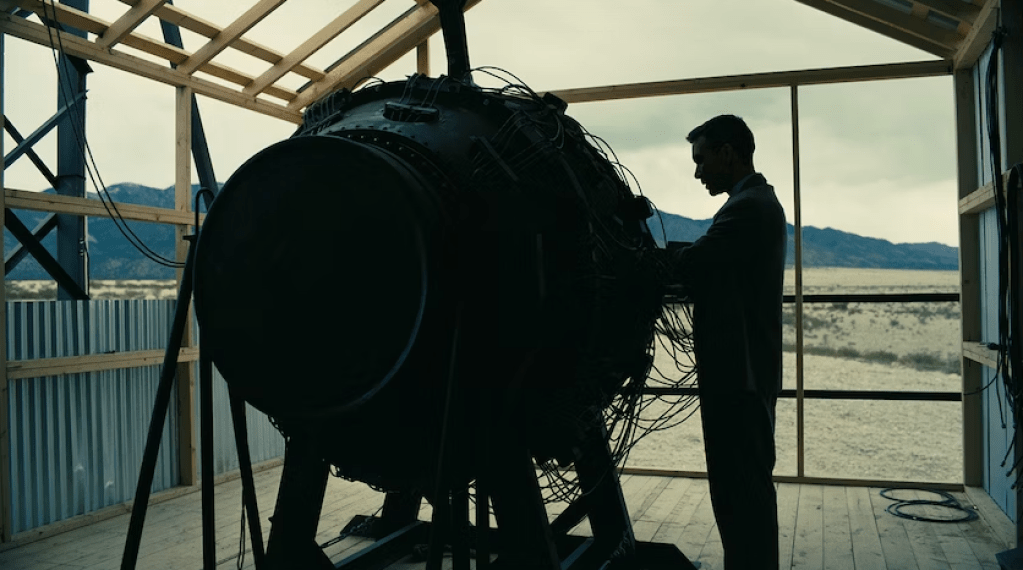

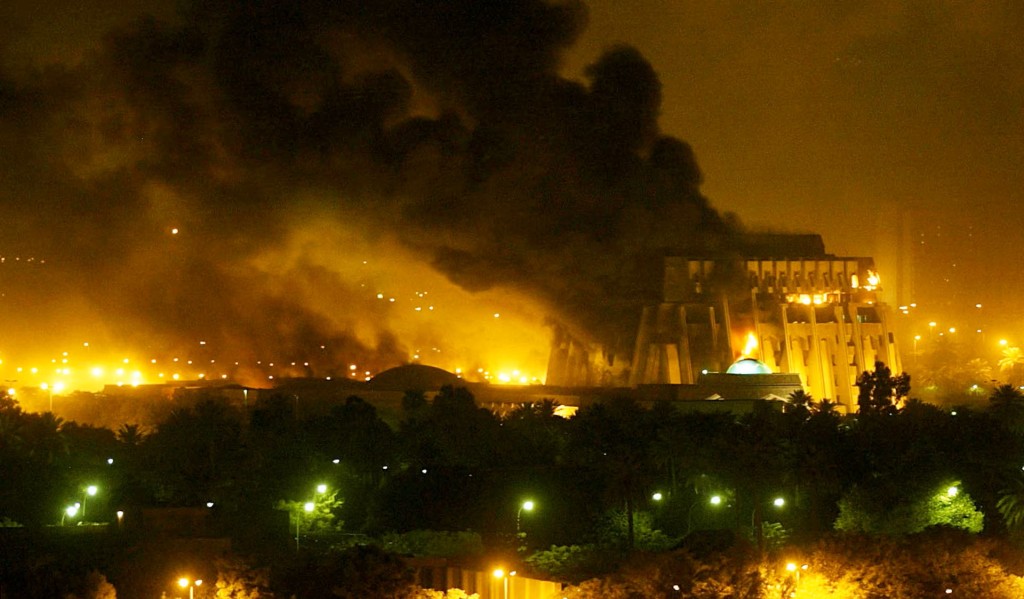
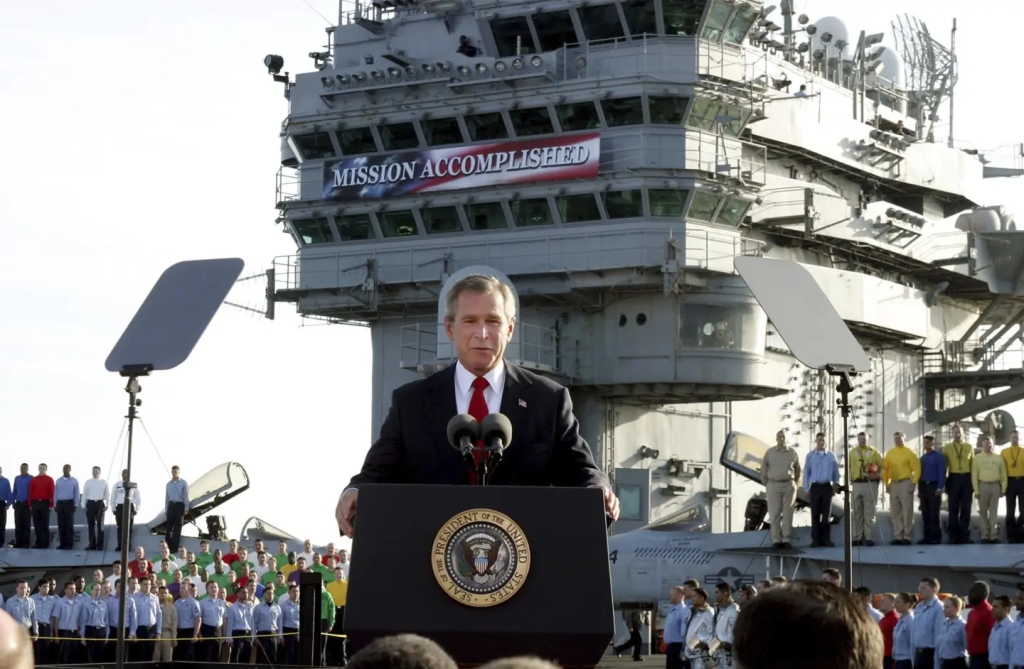
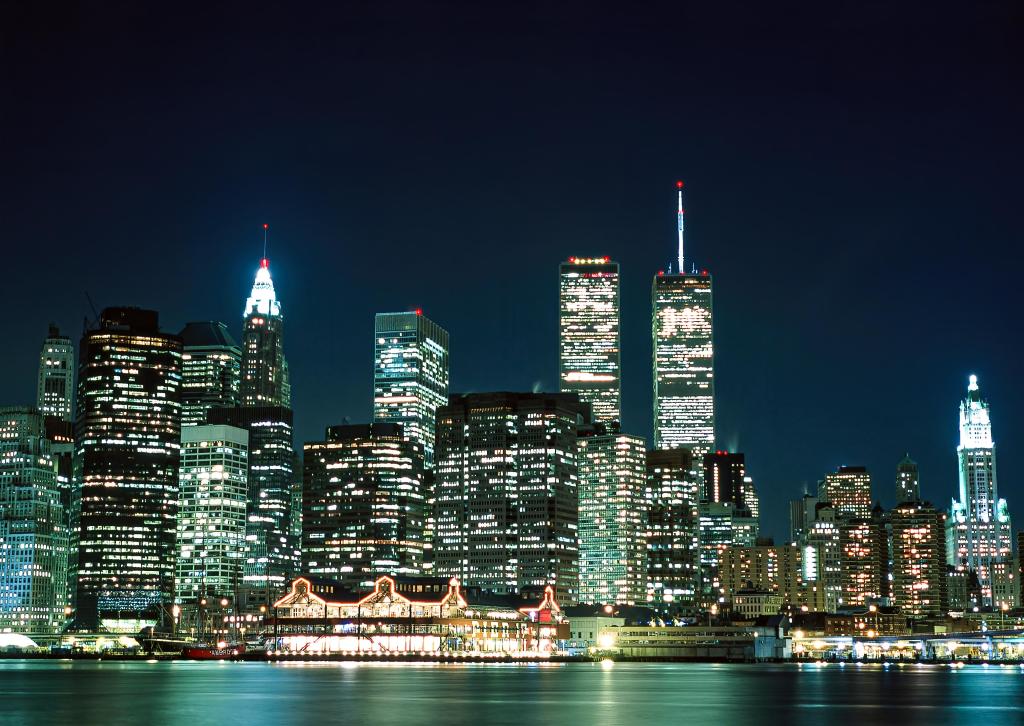
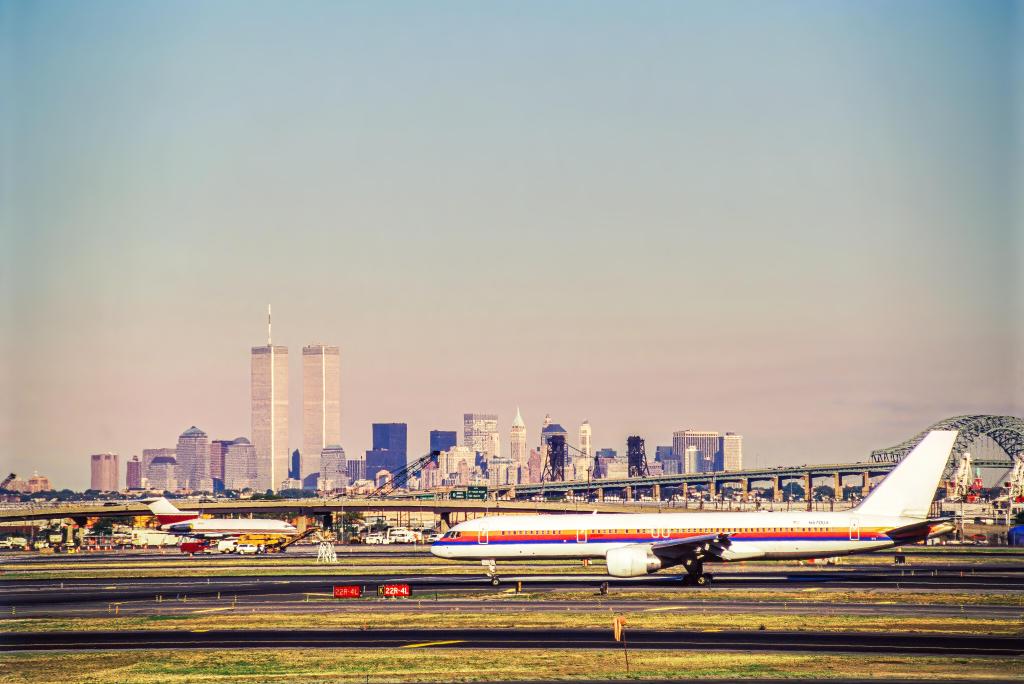

Leave a comment